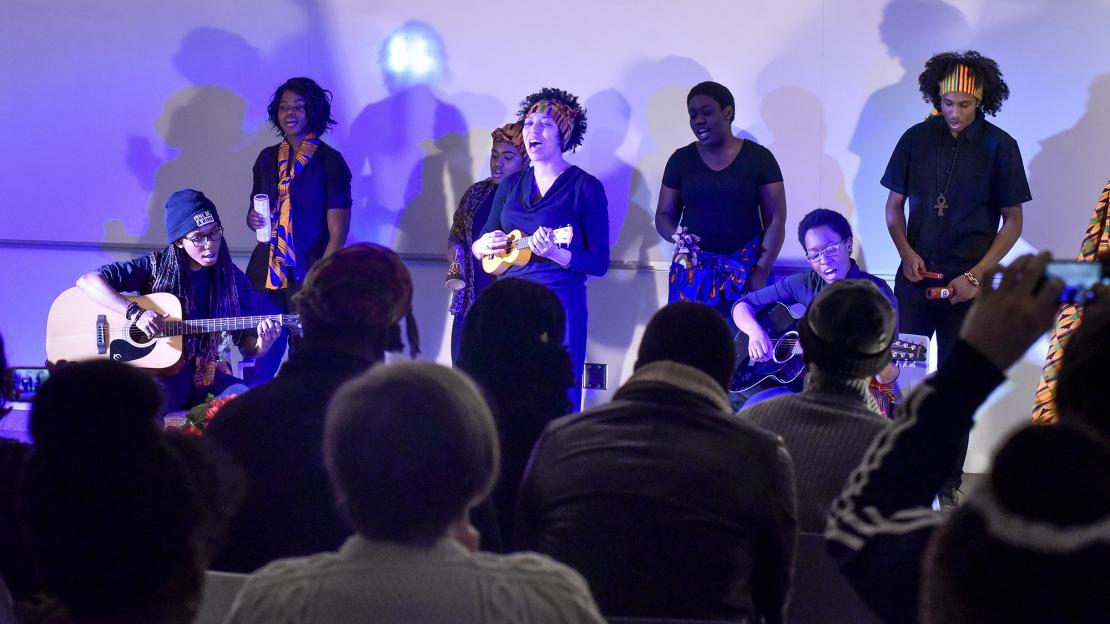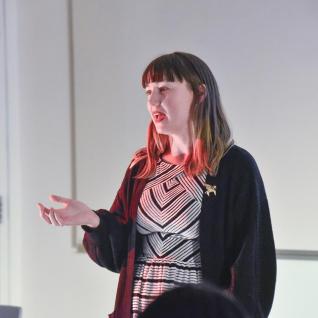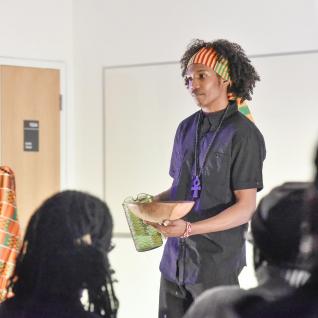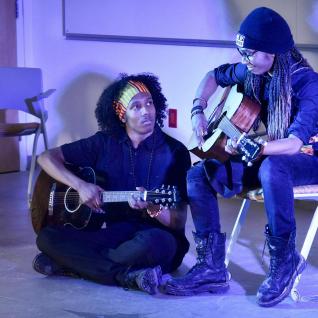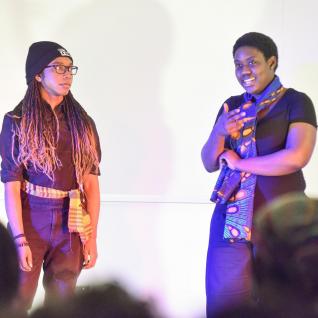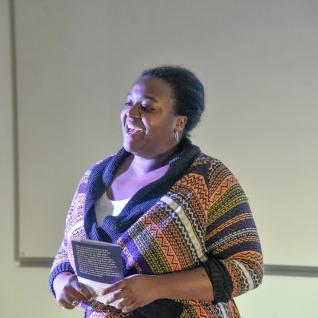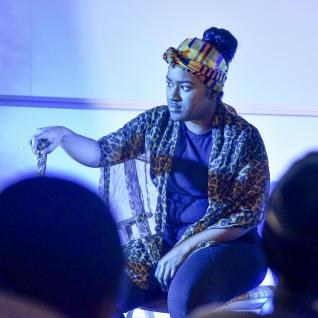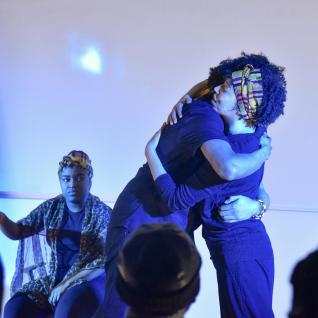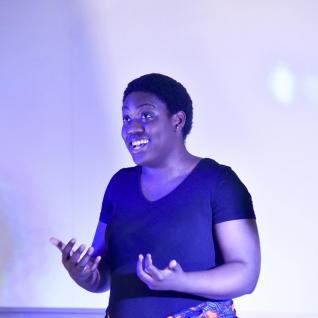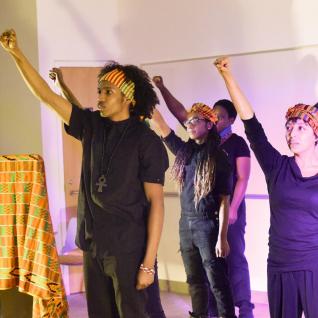A familiar narrative in Canada is that racism is less of an issue here than it is in the United States - where racism and racial tensions have historical roots that continue to impact American culture and society.
Intergeneracial, a Black youth oral history theatre program, has been turning that narrative on its head for the past three years through a play called From Their Lips, which was recently performed at U of T Scarborough.
“From Their Lips is a transcribed oral project,” says play director and performer, Isiah Lea.
“We interviewed several elders in the community to build this story and answer the questions of what is black identity, when is the first time you experienced racism and a whole bunch of themes that still affect us all today.”
Intergeneracial and From Their Lips is the work of founder and U of T alumna, Fiona Raye Clarke. Clarke (HBA, 2007), is a Trinidadian-Canadian writer, playwright, filmmaker and community-engaged artist.
Clarke was inspired to create the oral history play after seeing plays by Ange Loft, Associate Artistic Director of Jumbiles Theatre and multi-disciplinary artist from the Kahnawake Mohawk Territory. One work that specifically stood out was an oral history-based performance called After the Fire: Based on Interviews about Idle No More. After the Fire was a response to interviews collected during the height of the Idle No More movement, a protest that raises awareness of Indigenous issues. The performance brought together artistic elements and political, social, and personal calls for change.
“I wanted to learn how to do that kind of work myself, but with Black elders and in my own context,” says Clarke. “Ange mentored myself and the participants that started with Intergeneracial in 2015 through a process of conducting interviews with elders in our lives, asking the same ten questions and then translating all of that into a piece of theatre which we workshopped over three years, with this being the final product.”
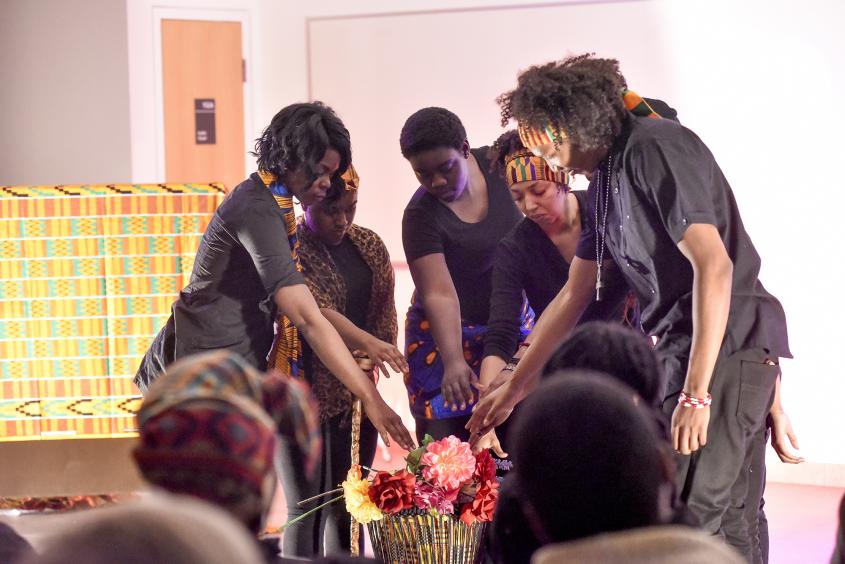
On Feb. 8, Lea opened the play with an Ashe ceremony, a practice of West African origins that acknowledges the spirits of ancestors. The show itself mixes monologues, short scenes and music to tell the collection of oral histories gathered from interviews conducted throughout 2015 and 2016.
The play discussed topics such as funding for predominantly racialized group homes, abusive treatment of Black women, gentrification in Toronto, the Canadian prison system, interracial relationships, diaspora communities and stereotypes placed on Black Canadians by those in and outside of their communities.
“I was half-Chinese and half-Indian, but my skin was darker than both, and my Jamaican accent labelled me as black,” relates one of the performers about the experience of colourism.
Several performers have some acting experience, but most are youth with no formal training. In fact, Marquela Nunes, a second-year U of T Scarborough English literature major, participated in Intergeneracial as an actor for the first time. Nunes says the opportunity meant a lot to her.
“As an aspiring writer, this is the stuff that I want to write about and be part of – the retelling of stories that have happened and what still happens today,” she says.
For Nunes the idea that Black experiences are treated merely as historical notations, and not the reality that generations are still grappling with through the effects of systematic racism - makes the project that much more important. “It reminds us that racism is something that you have to be vigilant about and something that we constantly have to fight against,” she says.
From Their Lips doesn’t set out to solve the issues it presents, but it does increase awareness and create space for conversation that takes place after the presentation. During a question and answer session with the cast, audience members expressed their thoughts on issues raised in the performance and proposed ideas on how to move forward when dealing with challenges.
The current edition of From Their Lips is focused on past and present Black experiences, but Clarke hopes to look ahead in future editions.
“I would like to explore what Black histories look like 100 or 50 years from now,” says Clarke. “I want to ask, where do you see us taking this country that we’ve been born in or brought to? I want to ask those questions and make an entire series of these plays.”
Intergeneracial was brought to U of T Scarborough through partnership with Hart House, U of T Scarborough’s Department of Student Life, and a grant from the Ontario Art Council.
The Department of Student Life appreciated the opportunity to collaborate on an event that worked within its goals of being more intentional about Black History Month programming, says Senior Manager of Student Life and International Experience, Nadia Rosemond.
"We look forward to students participating in future engaging and thought-provoking collaborations like this,” she says.
